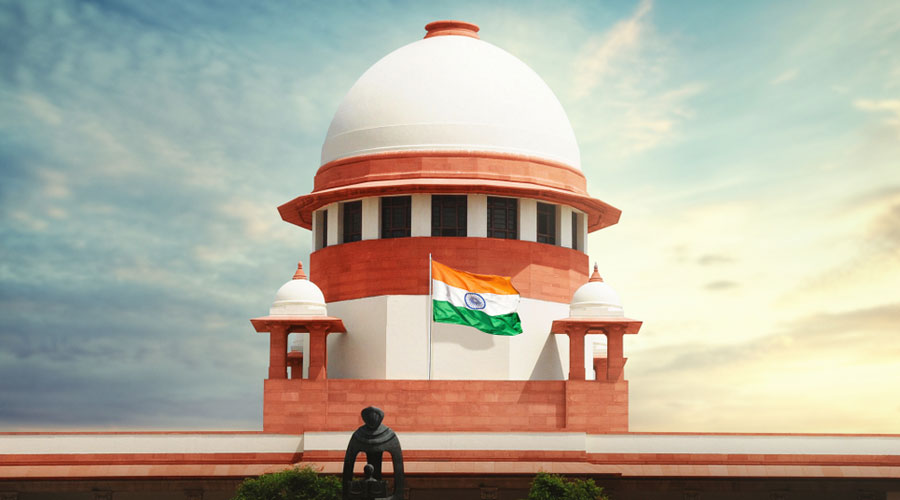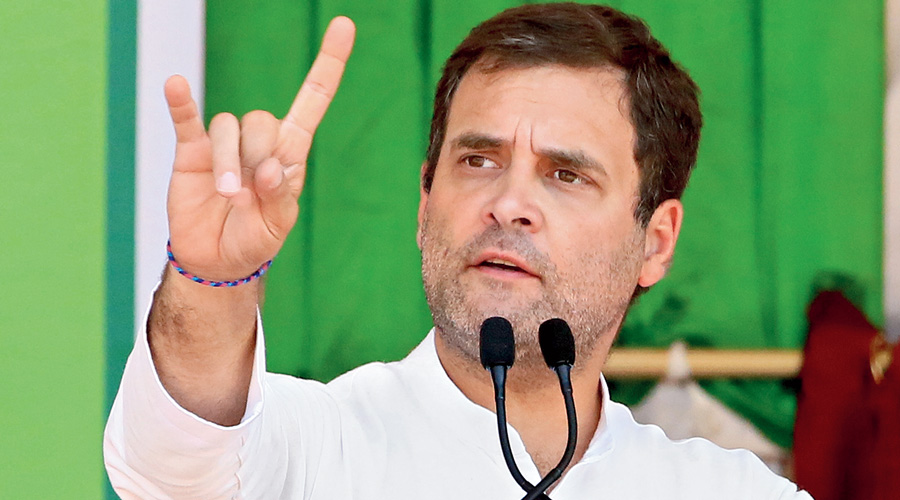The Congress on Friday said the Supreme Court’s intervention in Covid cases on Thursday was “wrong, wrong and wrong” and demoralising for the high courts, which were doing an excellent job of monitoring the authorities’ anti-pandemic actions and providing relief to aggrieved petitioners.
“It is wrong because the Supreme Court should not at the 11th hour, with one day’s notice, and on the very last day of the incumbent Chief Justice of India’s term of office, have virtually paralysed ongoing action in the country giving a healing touch to local problems at the local level,” Congress spokesperson and senior lawyer Abhishek Singhvi said on Friday.
“It is wrong because it may have the unintended effect of legit(imising) the utter failure of the central government on all fronts in its anti-Covid policies and actions.”
Certain oral observations by the apex court on Thursday had been construed as reflecting an intention to transfer to itself all the Covid-related cases pending with the high courts, which have censured the central and state governments’ failures.
On Friday, the bench — headed by outgoing Chief Justice S.A. Bobde — clarified it did not intend to restrain the high courts and chided senior lawyers heading associations that had moved intervention applications opposing any such move.
Singhvi, however, suggested that even without an actual directive, the court’s observations of Thursday would be enough to send high court judges a strong signal and cause them to “hesitate in passing orders”.
Singhvi said: “Amid this crisis, the Supreme Court’s intervention on April 22, 2021, is totally uncalled for. Unfortunately, it is wrong, wrong and wrong.”
“It is wrong because such orders have a demoralising, chilling, paralysing and negative effect on the excellent work being done by other non-governmental institutions of governance, including high courts,” Singhvi said.
“It is wrong because the Supreme Court, having been unable or unwilling to take hard, concrete steps for solution and significant mitigation of Covid-related hardships over the last 15 months, has in fact intervened at the peak of the crisis in a manner which may well retard and impede effective ongoing solution-oriented measures.”
Singhvi continued: “It is wrong because decentralisation (and) not overcentralisation —judicial, administrative or societal — is the need of the hour.”
Asked if the Congress was attacking Chief Justice Bobde, Singhvi said: “We are not criticising a person but an approach, an institutional fallacy. Can you find fault with even a single issue that I have raised? It is not about any individual, we are willing to point out any wrong intervention… on any issue in a constructive spirit.”
Singhvi also appeared to allude to the appointment of senior advocate Harish Salve, who doesn’t live in India and is known for his intimacy with the Narendra Modi government, as amicus curiae (friend of the court) in the case.
“It is wrong because it in fact enhances the closed and incestuous circle of the central government or connected/ affiliated persons and seeks to find a solution from among those responsible for the crisis in the first place,” he said.
Salve recused himself from the case on Friday, taking umbrage at comments about his perceived closeness to Justice Bobde.
Singhvi went on: “It is wrong because the order is narrow-based in terms of persons. It does not involve any other of the diverse stakeholders — NGOs, genuine bona fide public-spirited individuals, members of the Bar with a proven track record in such matters, experts, unbiased, objective and non-affiliated persons of eminence — and not even the attorney-general.”
Solicitor-general Tushar Mehta has been representing the Centre in the case.
The Congress has often in the recent past aired disappointment at the top court’s decisions. It had moved an impeachment motion against then Chief Justice Dipak Misra and criticised his successor Ranjan Gogoi, who later accepted the government’s offer of a Rajya Sabha seat shortly after retirement.
When Rahul Gandhi talks about the Modi government capturing institutions, the ambit of his criticism is understood to include the Supreme Court as well.
Told that the apex court had not stopped the high courts from taking up Covid-related matters, Singhvi said: “There is no formal ban but what is the messaging? They say, ‘We are worried’. They said the hearings in different high courts will be a hurdle in evolving uniformity of policy. Why did they issue notice?
“The high court judges will now hesitate in passing orders. If lawyers and activists all around didn’t create a noise, they (the Supreme Court) would have passed an order. Why did they appoint a non-resident Indian as amicus curiae? He has recused now but why was he appointed in the first place?”
Singhvi argued that the high courts, with their local focus, were better placed to deal with specific issues and provide relief to petitioners.
“The high courts were efficiently upholding the citizens’ right to life and holding the government accountable in a more nuanced way — on a case-to-case basis. Then where is the need to prevent them from discharging their duties? Why was the office of the attorney-general undermined?”











